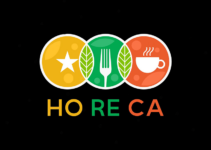These are challenging times for digital marketers and online businesses to navigate.
AI technologies are disrupting the digital landscape, Google’s Universal Analytics sunsets in mid-2023, and influencers are assuming the lead role in content marketing.
With so many tech innovations and trendy novelties, staying on top of the growing digital marketing craze is difficult. More so, ceaseless shifts in trends make it even harder to identify the right strategies for your business and leverage them successfully.
Luckily, there’s a way to hear the good stuff through all the noise — and this guide will help you zero in on the digital trends that truly make a difference.
Read on as we explore the seven digital marketing trends that should be on your radar in 2024.
1. AI & ML Working Hand-in-Hand With Humans

Source: blog.katanagraph.com
Artificial intelligence and machine learning tools are undeniably transforming our approach to digital marketing — yet, their possibilities are still a far cry from those of experienced, specialized humans.
Instead of entirely entrusting digital marketing endeavors to AI and ML, businesses and marketers should rather leverage these technologies wisely.
For instance, AI/ML tech can assist in time-consuming and repetitive activities, such as personalizing customer experiences, in-depth data analysis, and automating tasks. Thus, employees would have more time to focus on performing creative tasks and developing strategic initiatives.
That’s why the current trend of swapping entire content writing teams for ChatGPT (and other AI-based tools) is plain wrong. Content generated via AI tools lacks proper SEO, accuracy, and — most importantly — the human touch.
So, tools such as GPT are welcome to be the magic bullets for automating many round-the-office tasks — but the creative creation should remain with the people.
2. Influencer Marketing Continues to Grow & Become More Niched
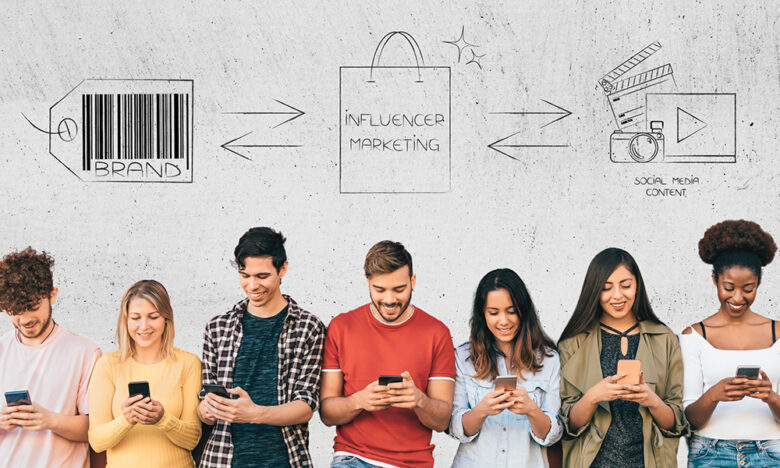
Source: burrelles.com
One of the top digital marketing trends in the past years, influencer marketing is set to dominate the scene in times to come.
In their aspiration to reach a wider audience and build brand awareness, brands have begun shifting from organic and paid social media marketing to working with influencers.
According to this year’s Influencer Marketing Benchmark Report, 7 out of 10 brands plan on expanding their influencer marketing budgets in 2024, with over 80% of marketers reporting satisfactory results in earlier campaigns.
So, influencer marketing is no longer reserved only for global brands and social media personas with a multimillion following. Smaller brands are entering the arena, and they opt to partner with local, niche-specific influencers whose audience is more engaged, loyal, and targeted.
Influencer marketing is an incredible opportunity to increase your brand’s reach, build trust, and drive sales. It’s up to you to leverage its power with a good influencer choice and well-thought-out campaign creatives.
3. Both Short- & Long-Form Video Dominate Content Marketing
Source: searchenginejournal.comThe video has solidified itself as the dominant form of content on the Internet.
Besides influencers and content creators leveraging the popularity of long-form vlogs and shorter video forms such as TikToks, Reels, and Shorts, brands too are beginning to jump on the wagon of video marketing.
Businesses have started incorporating video into their marketing strategies in new and engaging ways like video ads, client testimonials, user-generated content, product demos, and much more.
Video is an alluring and powerful tool for businesses to connect with customers, present their products/services, and effectively convey brand messages.
Each platform and its audience have unique expectations of video content. So, instead of allocating substantial resources to making distinct video forms for different uses, focus on creating repurposable content to fit your website, B2B platforms, and social media alike.
4. Search Engine Optimization Becomes a Must
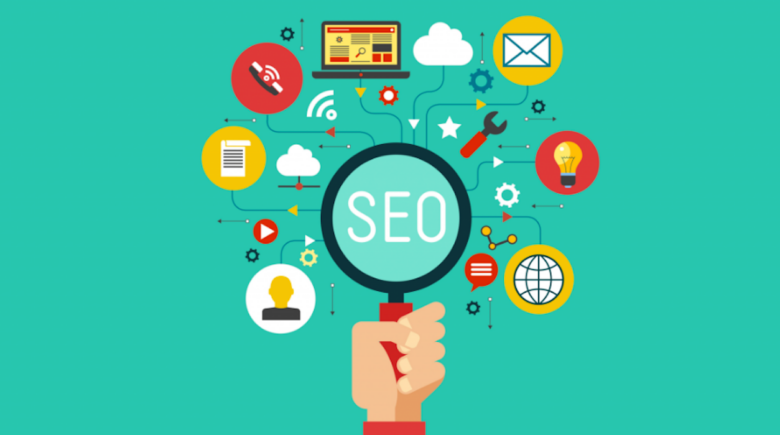
Source: bulkadspost.com
SEO has always been one of the staples of digital marketing — ensuring a fast-loading, responsive website with clean code, great UX, and keyword-oriented content.
However, the advent of ChatGPT seemed to, at first, threaten the SEO’s position as people moved away from search engines to the AI chatbot when seeking information and guidance online. More so, Google’s BARD will push organic results in SERPs further down in favor of the chatbot’s feedback.
Although some experts deem it futile for website owners and marketers to create and optimize content that doesn’t stand a chance against AI bots, this couldn’t be further from the truth. If you want to learn more about the benefits of SEO for your business you can contact Digital Silk.
Sure, AI-powered chatbots are taking over the world by storm, but the complete obliteration of websites is still very far away.
Therefore, make SEO the foundation of your site development, maintenance, and content creation. Optimize your site’s code and content for users and engines alike by leveraging AI-based SEO tools and AI-friendly digital strategies.
5. Predictive Audience & Depersonalization

Source: smartdatacollective.com
Growing privacy concerns have left consumers rethinking what data they are willing to give out in the online world.
Personalizing a site’s offer based on previous purchases and curating content per users’ online behavior isn’t what consumers deem good brand practices.
Thus, brands and marketers need to shift their perception from the traditional concept of personalization to “predictive audiences.”
Predictive audiences is a recent addition to GA4. They represent groups of users that meet at least one condition based on a predictive metric.
For instance, GA4’s new feature will enable you to build an audience of “likely 28-day purchasers” that would include users predicted based on their behavior to make a purchase within the next 28 days.
Using predictive audiences in your digital marketing activities is greatly beneficial as it allows you to make data-driven, AI-powered decisions without requiring much user data.
6. The Application of Chatbots Will Expand Beyond Customer Service
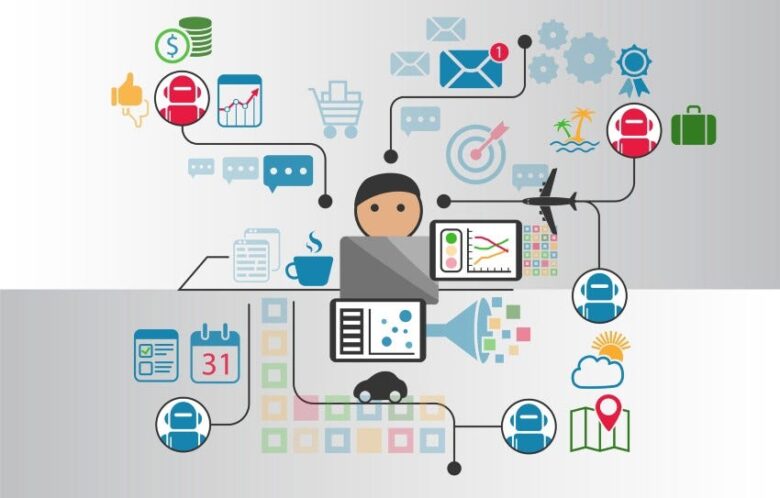
Source: chatbotsmagazine.com
Chatbots have long been among the top digital marketing trends thanks to their ability to provide sophisticated and personalized customer service.
The AI/ML-powered customer support helped free up time for human employees to focus on more creative tasks and enabled consumers to get the info they needed in a streamlined, concise, and quick manner.
As consumers grow less patient in their activities online, chatbots become more invaluable in ensuring brands provide immediate assistance and feedback to their customers.
But the bots’ application is expanding beyond mere customer service — evident in ChatGPT and Google’s Bard. Chatbots are now powerful enough to guide customers through the sales funnel, not just assist when an issue arises.
Before integrating a chatbot into your website, do customer research to adequately plan the bot’s questions and answers. Moreover, remember to incorporate existing marketing tools and software, as well as provide users with an option to reach a human representative.
7. Creativity & Originality Become More Important Than Ever
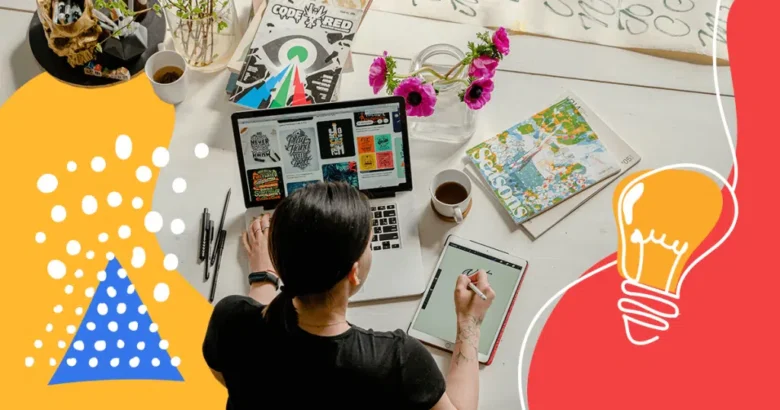
Source: rockcontent.com
Let’s wrap up this overview of the digital trends with probably the greatest marketing must in the years to come — creativity and originality.
It has never been easy for a brand to stand out among the vast sea of businesses — and it is especially true nowadays, with everyone following identical marketing fads.
In addition to the online marketing strategies of most businesses looking all alike, consumer attention spans have shortened and expectations have grown.
Finally, the greater involvement of AI in digital marketing raised the bar for the creativity and originality of online advertising — average-looking visuals and cheesy marketing slogans simply won’t cut it anymore.
Besides going above and beyond to be creative in the content you create, make sure your digital marketing strategies are clever and original as well.
Leverage the data and insights different marketing platforms and tools provide to gauge your content to your audience’s preferences and needs.


